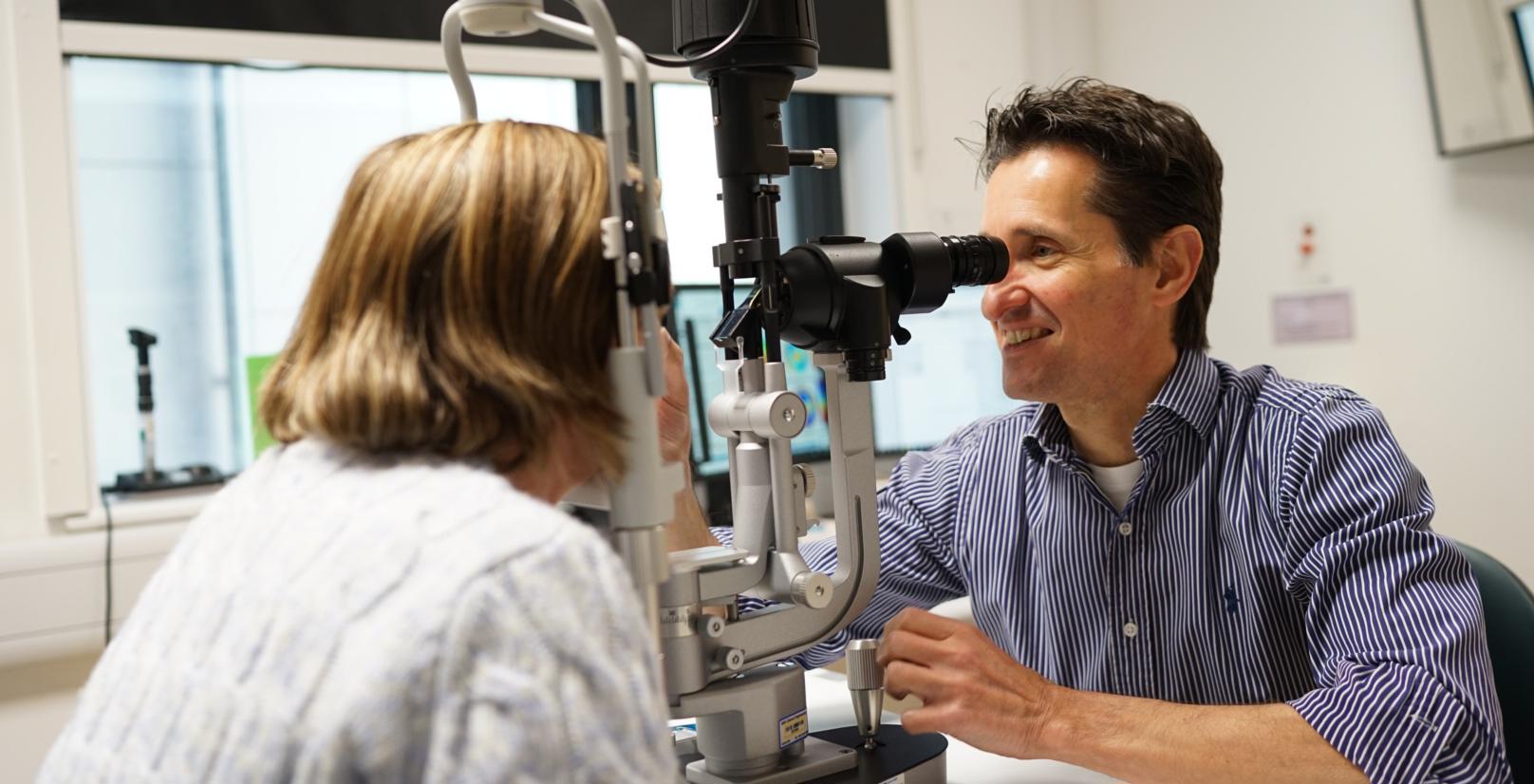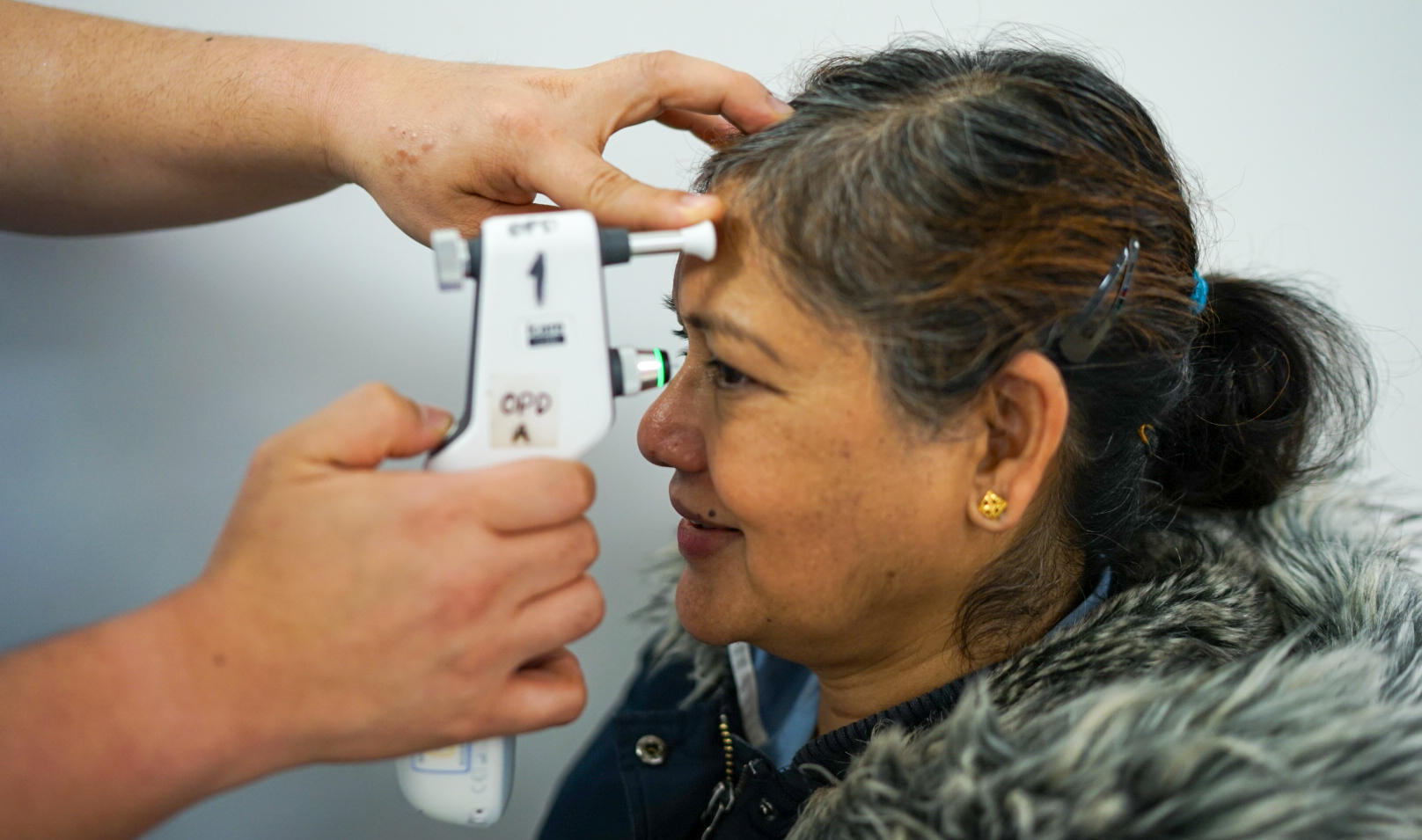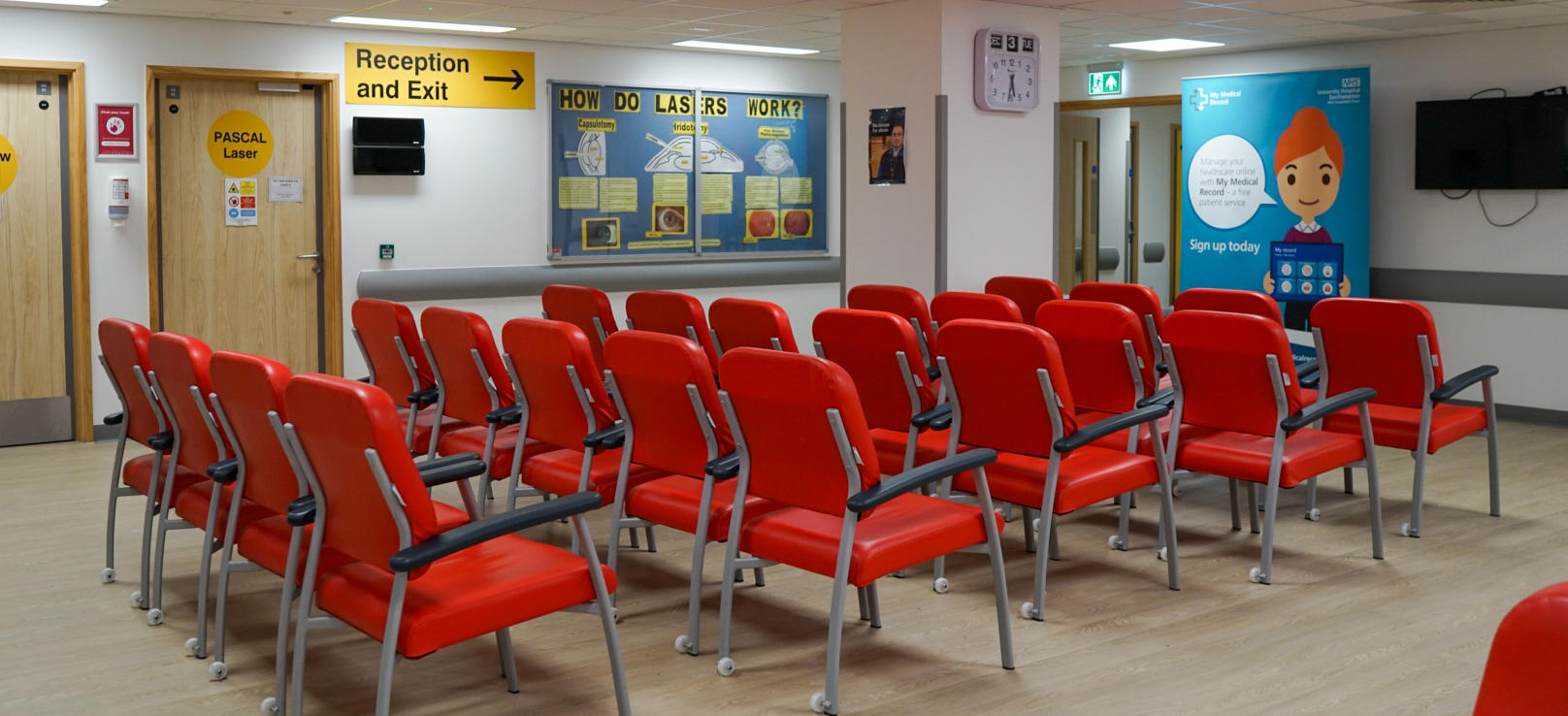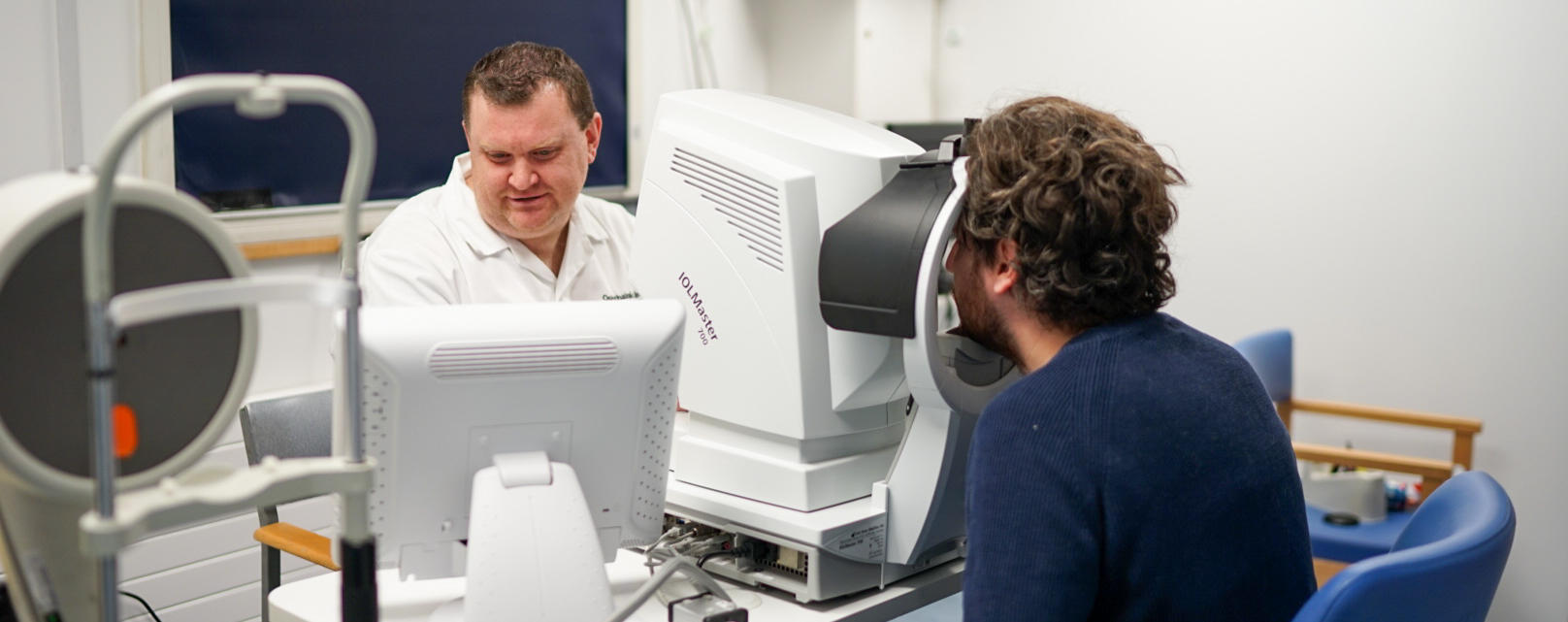Cataracts
What are cataracts?
Cataracts are when the lens, a small transparent disc inside your eye, becomes cloudy. Over time, cataracts usually progress, causing blurry, misty vision and eventually blindness. When we're young, our lenses are usually like clear glass, allowing us to see through them. As we get older, they start to become frosted, like bathroom glass, and begin to limit our vision.
Cataracts usually appear in both eyes. They may not necessarily develop at the same time or be the same in each eye. They're more common in older adults and can affect your ability to carry out daily activities such as driving.
What causes cataracts?
Most cataracts are the natural result of ageing. However, there are several other factors that may increase your risk of developing cataracts, including:
- diabetes
- eye injury
- previous eye surgery
- long-term use of medications (such as steroids)
What are the symptoms?
Cataracts usually develop slowly over many years, so you may not notice symptoms at first. Symptoms of cataracts include:
- blurred, misty or clouded vision
- frequent changes in eyeglass or contact lens prescription
- double vision
- sensitivity to light (lights look too bright or glaring)
- difficulty driving at night

How do I get referred?
An eye care professional, usually an optometrist or doctor, will do a series of eye tests, including a visual acuity exam, which measures how well you see. If the eye care professional considers you have cataracts, they may refer you to a hospital eye specialist (ophthalmologist) for more tests and treatment.
When to have cataract surgery?
If your cataracts are not too bad, updated glasses and brighter reading lights may help for a while. However, your cataracts will gradually get worse over time, so you will eventually need treatment. The only treatment that is proven to be effective and permanent for cataracts is surgery. If reading has become difficult, driving and day to day activities have become difficult then it would be time to consider having cataract surgery. It will only be carried out if deemed necessary by yourself and your surgeon.
What is involved with cataract surgery?
Cataract surgery involves removing the clouded lens and replacing this with an artificial lens (IOL). It is often carried out as a day surgery, under local anaesthetic, not requiring an over night stay.
What are the benefits of cataract surgery?
Cataract surgery can:
- significantly improve your vision
- reduce or eliminate the need for distance glasses
- correct underlying refractive errors (such as astigmatism, and short and long sightedness)
- help improve other eye conditions, such as glaucoma

Before your surgery
Before your surgery, we will ask you to come to a cataract clinic. At the clinic, you will have an assessment to see whether cataract surgery is appropriate for you. During this assessment, we will:
- take different measurements of your eyes and your eyesight
- ask you questions about how your day-to-day life has been affected by your cataract(s)
- explain the potential benefits and risks of the surgery to you
- discuss what type of intraocular lens (IOL) you will have inserted during surgery and whether you wish your vision to be optimised for distance or near
- discuss the availability of other lenses, such as multifocal or toric lenses, and also the option of not having surgery.
Are there any risks or complications with cataract surgery?
Generally, cataract surgery is a very safe procedure. However, as with every surgical procedure, there are some potential risks and complications. They are not very common, and most of them can be corrected with a second procedure or treatment. This will be discussed with you in your appointment prior to surgery to ensure you are happy to go ahead with treatment.
Follow-up appointment
We will invite you to a follow-up appointment, which will usually be within six weeks of your surgery. This appointment will be at the clinic or at your local opticians (if you had an uncomplicated surgery). If you have another eye condition, such as glaucoma, you may have an earlier follow-up appointment.

Do cataracts grow back?
The artificial lens (IOL) cannot cloud over in the same way, and so cataracts do not grow back after surgery. However, the capsule behind the IOL can become slightly cloudy (this is called posterior capsular opacification). This is common (affecting up to one in ten people) and can happen at any point after cataract surgery. It can be treated with a minor procedure (called a YAG capsulotomy) at the outpatient department.
Why choose UHS?
Choosing to have your cataract surgery with us offers several benefits:
- Most up to date outpatient and theatre equipment.
- Once seen in the outpatient clinic, depending on complexity, you can be listed and booked for surgery within a matter of weeks.
- We offer face to face follow ups, if necessary, and have some of the most experienced optometrists in the country.
- We are one of the largest tertiary referral centres in the south of England.
- We have the best experts in the region - University Hospital Southampton (uhs.nhs.uk)
- In the unlikely event of a complication, this can be managed within our department as we have in-house expertise for all possible eventualities.
